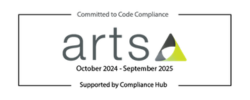Engaging with equality and equity is key to individualised diabetes care
)
The Clinical Senior Lecturer of the Diabetes and Vascular Research Centre has been chairing DPC’s Summer Forum sessions.
The next webinar, made possible due to a hands-off grant by AstraZeneca, is entitled ‘Nothing about us without us, connecting with your diabetes patients to achieve shared goals’. It will take place on Wednesday, September 16 at 7pm.
Explaining what the next expert panel will be discussing, Dr Strain says: “For the last three months we’ve been talking about the new technologies we’ve been using to see our patients, how to achieve the best targets and how the newly introduced working practices have impacted healthcare professionals.
“However, at no point have we heard from what the person with diabetes feels about all the new changes, about what’s been going on and whether they feel safe to start seeing diabetes care teams again.”
Dr Strain will be appearing along with Professor Partha Kar, National Specialty Advisor, Diabetes with NHS England, DPC Founder Maggie Meer, Dr Roni Saha Consultant in Acute Medicine Unit and Diabetes and Endocrinology, Alison Cox, Diabetes Specialist Nurse, as well as Christine Douglas who is an expert in patient liaison.
“I’ve worked with Christine for a number of years and she’s the person who made me understand the difference between equality and equity,” explains Dr Strain.
“She told me that if you have three people of different heights who are trying to look over a fence and you give them all the same size box, then that’s equality because everyone is being treated the same and fairly.
“But, if you give the smaller person a step ladder to climb, the middle one a box to stand on and encourage the taller one to look over by themselves, then that’s equity because it refers to fairness and equality in outcomes, not just in supports and opportunity.
“That’s what we should be doing when it comes to treating people with diabetes. Ensuring they are being treated fairly, but also tailoring our approach and individualising care to ensure each and every patient gets the best health outcomes.
“I see it all the time in clinic. I might see a patient who needs to bring down their HbA1c levels. But if I talk to them about figures, they’re just not interested. What they want to know is how can they prevent losing their sight so they can see their son or daughter graduate. The answer is, of course, to reduce their HbA1c levels, but I’ve got to find a way to re-label that. It’s about finding a way to engage with each individual patient in order to get the health results I want for them, as well as ensuring they’re getting the health outcome that they also want.”



)
)
)
)

)
)
.jpg/fit-in/1280x9999/filters:no_upscale())
.png/fit-in/1280x9999/filters:no_upscale())
)
)
)
